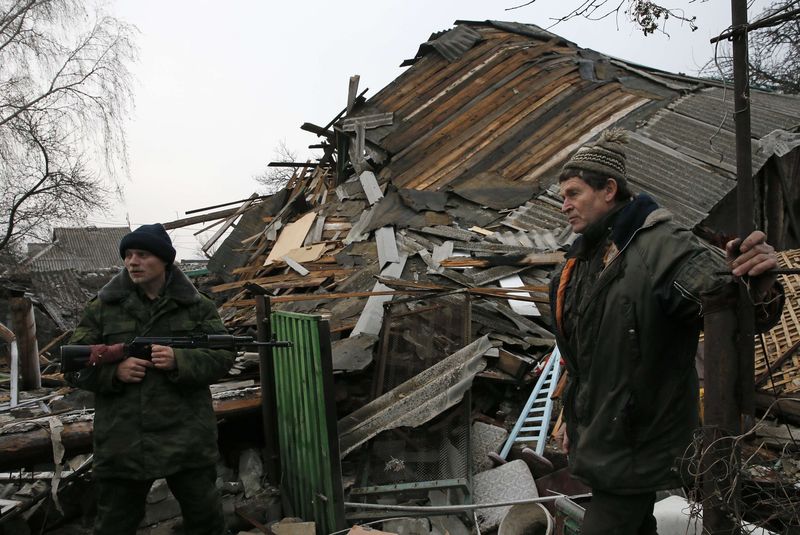KIEV (Reuters) - Around 1,300 people have been killed in Ukraine's separatist conflict since a September ceasefire, according to a U.N. report that said many living in the country's rebel-held east were struggling to survive.
As of Dec. 12, 4,707 combatants and civilians had been killed since pro-Russian rebels seized eastern regions near the border with Russia in April.
Of these deaths, 1,357, or nearly 30 percent, were recorded after the Sept. 5 truce, some of which may have occurred prior to that date, the report released on Monday said.
While violence has abated in recent days, shelling has repeatedly punctured the truce agreed between Ukrainian government forces and separatists, worsening a humanitarian crisis that has left many civilians without adequate social support.
"The conflict is in its ninth month and the situation is becoming increasingly dire for the population still living in the east," U.N. High Commissioner for Human Rights Zeid Ra'ad Al Hussein said in a statement.
The central government in Kiev has severed financial ties with the separatist territories, cutting off pensions and welfare payments due to fears that the funds would end up financing rebel military operations.
This decision is likely to worsen the economic and social vulnerabilities of people in the east, the United Nations said, as, despite desiring total autonomy, rebel authorities have yet to sort out their finances, creating an institutional vacuum.
"The situation of many people, including those held against their will, in areas under the control of the armed groups may well be life-threatening," Zeid said.
The report also highlighted systematic human rights violations on the Crimean peninsula, annexed by Russia from Ukraine in March.
U.N. monitors have repeatedly expressed concern over the treatment of religious and ethnic minorities such as Crimea's sizeable Tatar population, since Moscow seized the territory, which has long been home to Russia's Black Sea fleet.

The report said those who have voiced opposition to the annexation have had property seized and faced issues over their citizenship.
(Reporting by Alessandra Prentice, editing by John Stonestreet)